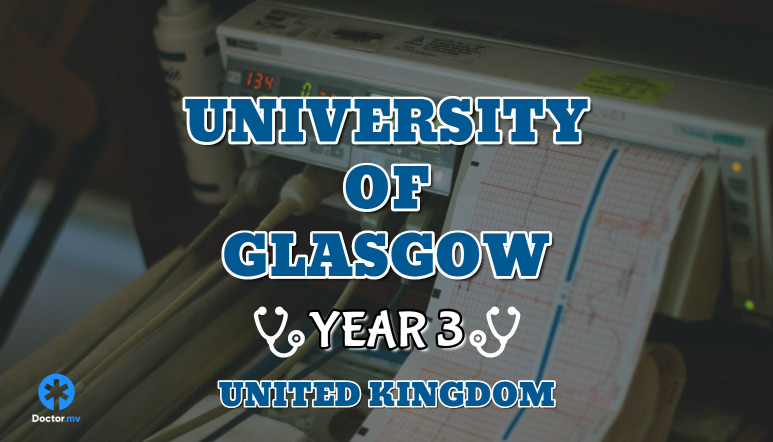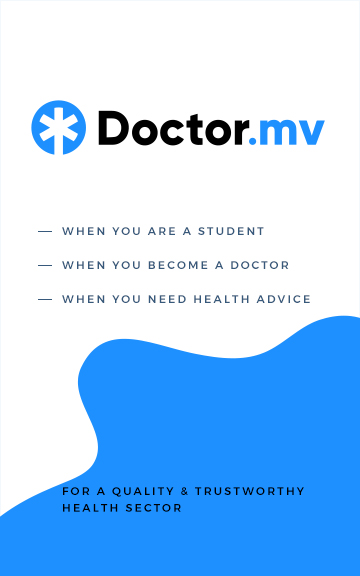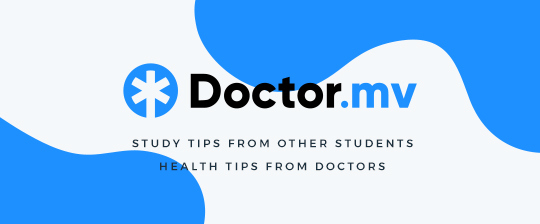I'm AISHATH M. and this is My Medical Student Life

University
University of Glasgow
Current Year
Third
Medical Specialty Interested in
Emergency Medicine, Surgery(trauma), Diagnostic Medicine, Interventional Medicine, Neonatal
One Word that Describes You
Approachable
Most Intriguing subject in Medical School
We don't have subjects per se. But Microbiology would be at the top along with Endocrinology and Acute Medicine.
What was your path to Medical School like?
I had set my heart to become a scientist (apparently when I was a child). I did my O'levels in Billabong High International School (BHIS) and it was a lot of self learning. We didn't have teachers for some subjects sometimes. It did help me with a lot of self learning which I am thankful for.
During the 6 month break I worked as a clinical assistant in IGMH. I did my A levels in CHSE; a sudden shift from Cambridge to Edexcel.
I applied to Glasgow university via UCAS. UCAS is the system on how you apply to all universities in the UK. I heard about it from my literature tutor who said they have an excellent Medical programme.
However, I was forced to take a gap year because I had a complication with my visa. Luckily, the university was nice enough to defer me to the next year.
What was the biggest difference between your expectations of entering Med School when you were doing A'level, and the actual experience of being there?
I enjoyed Biology in O'levels but hated the subject in A'levels. I was not expecting a smooth ride learning Anatomy and Physiology. But I am really loving the clinical aspects of it. There were less spoon-feeding and more research based which undergraduates had to get used to. Medical school is not difficult. It's just a lot of volume.
How is your daily routine like?
We have 4 phases in our Medical degree.
Phase I - 11 introductory weeks to each field which was lecture based. We had introduction to Anatomy and vocational studies as well.
Phase II - 7 blocks based on different systems where each block lasted 4 weeks. We don't have separate subjects per se. Anatomy, vocational studies, Physiology, Pharmacology, Pathology is fixed together into that 4 weeks we learn the system.We have a spiral learning system where we revisit stuff we learned from the previous block depending what we are learning now.
Phase III - Extensive 15 weeks of clinical lectures. We have 10 lectures per week and one clinical placement and 2 CBLs (Cased Based Learning). We are given case based scenarios and we discuss them in groups.
Phase IV - Currently the phase I am in. 2.5 years of clinical placements in Surgery and Medicine. We also have SSC (Student Selected Component) each year where every student does something they would like done. I did genetic screening last year for my SSC.
During the clinical placements it varies from one hospital to another. In GRI (Glasgow Royal Infirmary), we have tutorials on Mondays and Fridays and ward rounds, theater and other procedures on other days. Usual days are at 9 am and on ward round days at 8 am. You can always slip out to do some studying in the library or if its quiet day go home to get some studying done. Although you do get a lot studying done in the hospital itself.
What kind of Medical Schools did you apply to and why?
I decided to do a trial run during my AS A'levels before I actually applied.
So, I applied to 4 universities (you can only apply for 4 if applying for Medicine) via UCAS. Oxford, Cambridge, Newcastle and Glasgow.
Surprisingly, Glasgow accepted my offer and viola I was in. My literature tutor always talked about how Glasgow was great at Medicine so I was hoping to see how their teaching was.
Medicine requires a good deal of independent study. How have you managed this approach to learning in the past?
We have something called PBL (Problem based learning) in Phase I and II. We have a scenario and do own reading on it and submit our findings in class the other day. It really helps you learn and brush on your research skills.
Name your favorite medical text book.
Oxford Handbook of Clinical Medicine.
When you visit hospitals, do you get the chance to do more practical work, or is it more observation?
For the first 2.5 years you take histories and get examinations done but no clinical procedures. I am currently on my surgery block in GRI (Glasgow Royal Infirmary) which is busy but you do get hands on in everything. Everyone is so helpful and the patients are willing to let you learn. But that said, as a Medical student you must always work in your zone of competence and confidence.
What is the most effective way to study in Medical School?
There is no definite effective way. In any field of education it all depends on how each one prefers to learn. I find it very hard to study in the library and always study at home.
My method of learning depends on my mood and what the topic is about. Sometimes, I take the presentation itself and condense it into a few slides. For instance a lecture of 30 slides into 15 or 12 slides.
I don't use much text books. Instead I refer to a lot of lecture notes and some websites. The university has a lot of online subscriptions to some Medical websites and research sites which are quite good. For example, ScienceDirect is an online website which has up to date info.
Like I mentioned before, my go to book would be Oxford Handbook of Clinical Medicine. It is really effective when you are doing your ward rounds and need a sneak peak.
I also used OneNote in my second year. Tried the AnkiApp to make flash cards for a few lectures as well.
Do you need High grades to become a decent doctor?
To be a decent doctor? No.
To be a great Medical student? Yes.
Being a doctor is very different to being a Medical student because you are applying your knowledge into practice. You need the communication skills and investigative skills to maneuver through each case, because no one patient presents symptoms as the other.
And no matter how many books you read those aren't going to help you get a venepunture done or insert a catheter in.
Finally, what is the one tip/advice you want to give to our readers?
Studying as a medic and practicing are two different things.
Whether you study in Asia, Middle East, Oceania or even the West, the fundamentals are the same. Becoming a good doctor depends on how much you put in and the clinical exposure you get.
The My Medical Student Life series was created for the sole purpose of helping medical students and aspiring doctors on their journey to become a successful Maldivian Healthcare Professional. Have a suggestion, idea or question? Email us.



Leave a comment
0 Comments